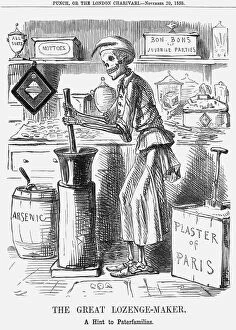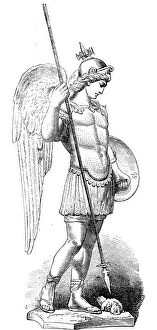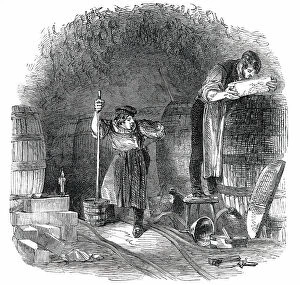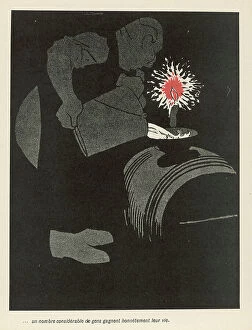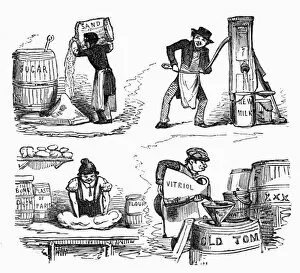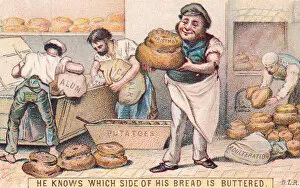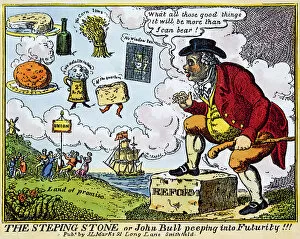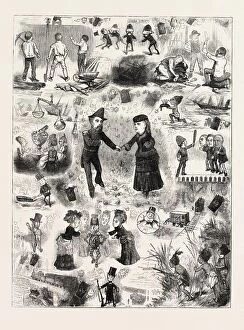Adulteration Collection
The Great Lozenge-Maker, a satirical nod to Paterfamilias from 1858 by John Leech, sheds light on the rampant issue in the 19th century
For sale as Licensed Images
Choose your image, Select your licence and Download the media
The Great Lozenge-Maker, a satirical nod to Paterfamilias from 1858 by John Leech, sheds light on the rampant issue in the 19th century. From watered-down wine (as depicted in a French caricature postcard from around 1900) to tampered food supplies exposed in an 1845 report, the problem was far-reaching. Thomas Wakley, a medical and social reformer, joined forces with William Cobbett to combat food adulteration. Yet, as this comic retrospect of 1873 titled "Coram Street; Adulteration Act; School Board Entirely" illustrates, the fight against adulteration was an ongoing battle. Even bakers, as seen on a Christmas card, were not immune to the temptation to cut corners. These historical snapshots serve as a reminder of the importance of transparency and consumer protection in our food and drink industries.

